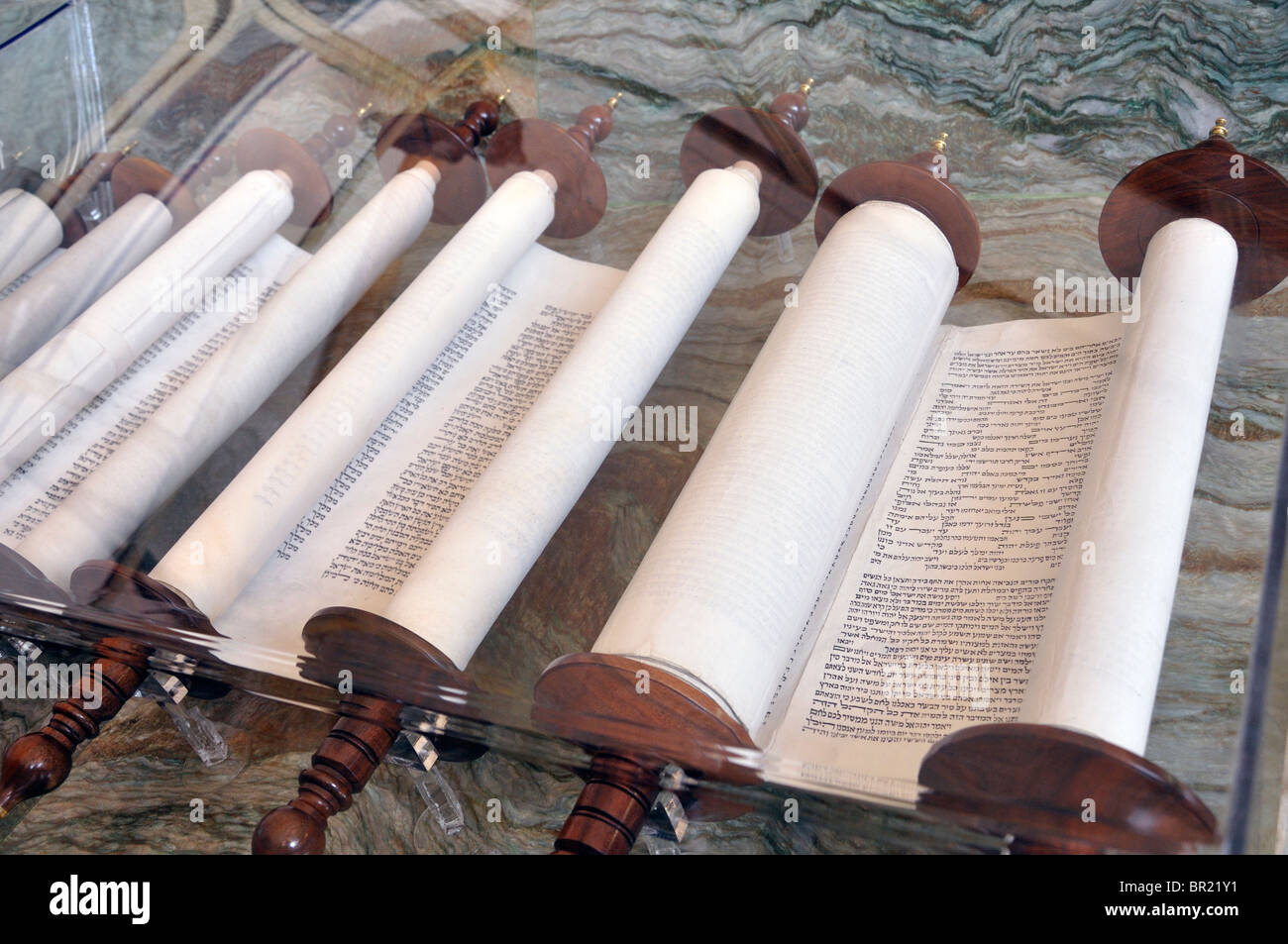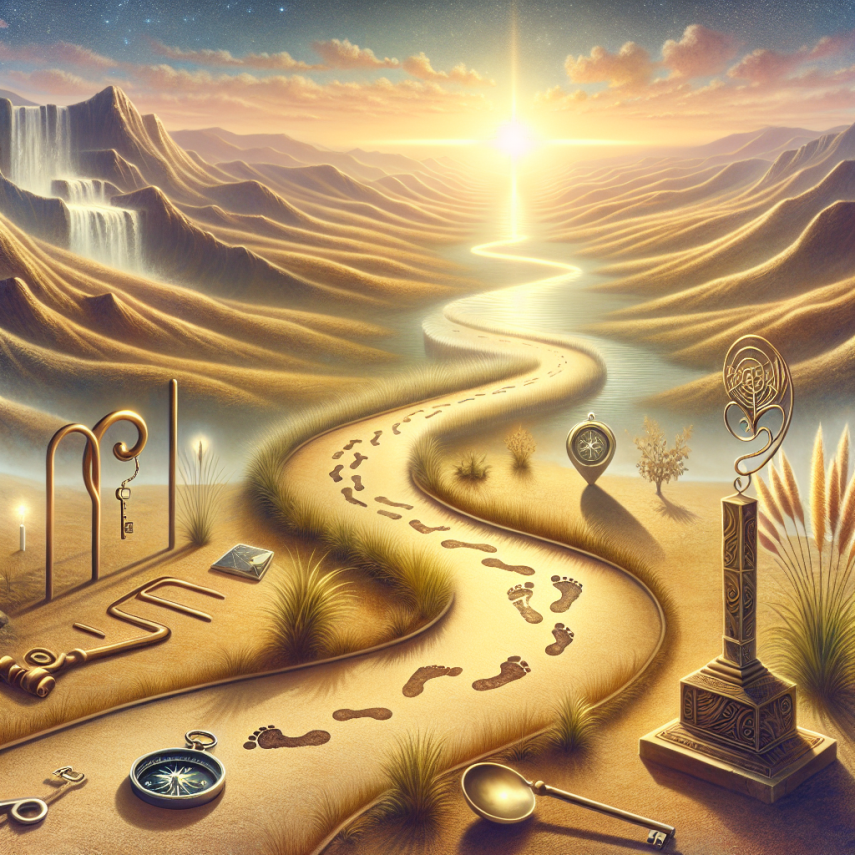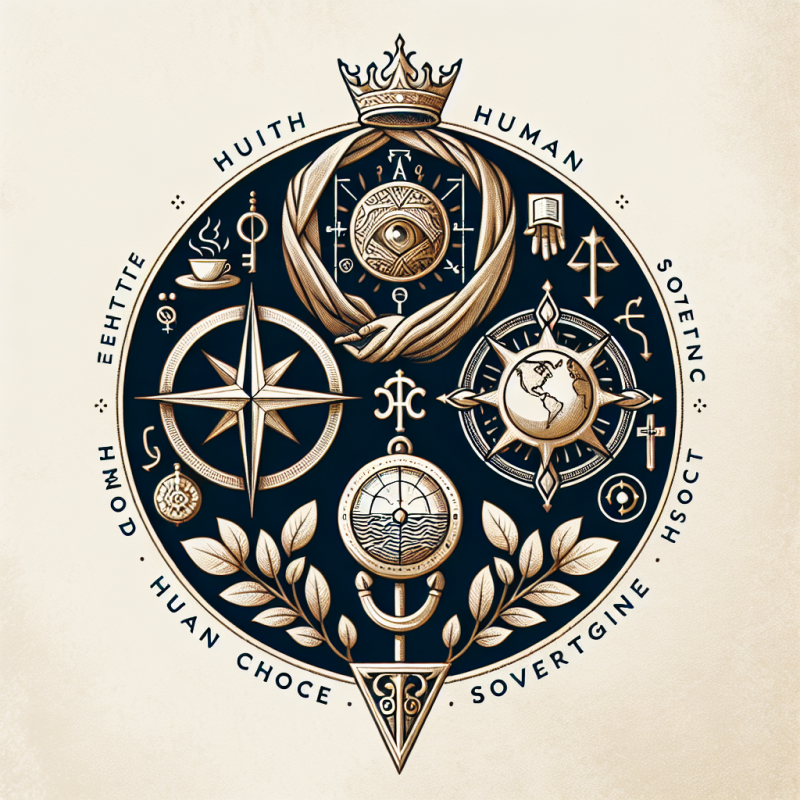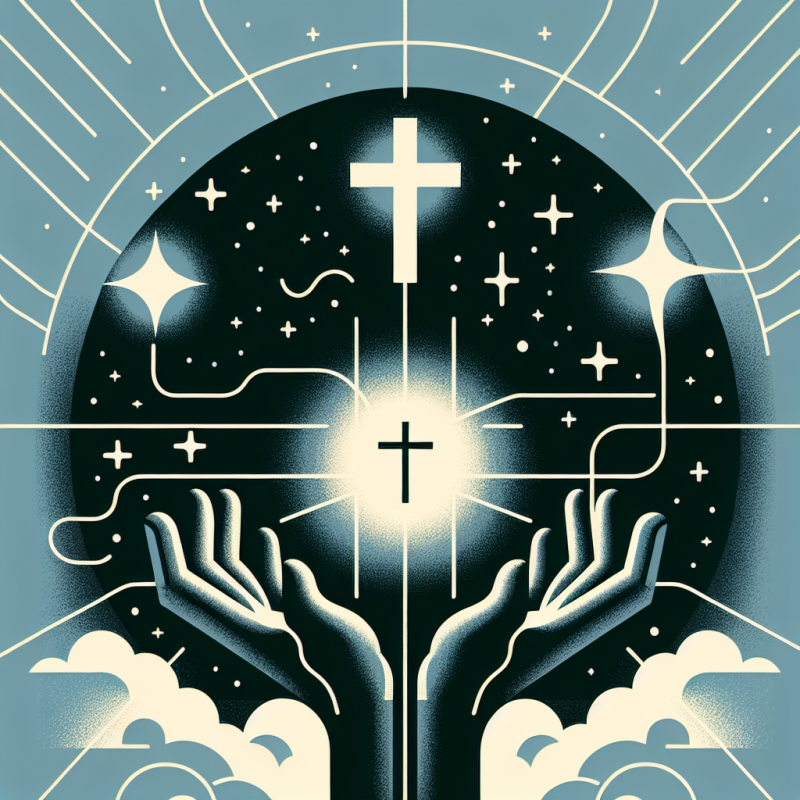Understanding Omniscience and Omnipotence: A Christian Perspective on God’s Knowledge of the Future
In my spiritual journey, I’ve often wrestled with the profound questions surrounding divine knowledge and God’s relationship with time and creation. The idea of an all-knowing, all-powerful God who exists beyond the confines of time fascinates me. How does God, from a Christian perspective, know the future? And more specifically, how do we reconcile human free will with the concept of God as ultimately sovereign over all things?
This tension has long been at the heart of Christian theology, and it’s one that continues to be explored in contemporary discussions around science, faith, and philosophy. For instance, in previous Christian Ethics articles on free will and the problem of evil and God’s omniscience, various explorations have been made into how God interacts with the unfolding story of the universe. In this article, I’d like to expand on some of these thoughts through my reflections on the relationship between omniscience, omnipotence, and human freedom.
Omniscience: Does God Know Every Possible Future?
One of the pivotal questions in this theological exploration is understanding omniscience—the idea that God knows everything. To expand on this, we must ask: Does God necessarily know every detail of the future, including those that hinge on our free choices? It’s a topic explored deeply in both theological and philosophical circles, with some views proposing that God knows not only the actual outcome of events but also all possible outcomes—what might be called the realm of possibilities.
In this view, God understands every conceivable permutation of decisions and branches of events based on the free will choices we make. However, what is striking to me in this reflection is that God’s omniscience does not necessarily negate our freedom. While He knows the full space of possibilities, He does not predetermine every action, leaving room for authentic human agency.
This contrasts with more deterministic views where God’s knowledge of the future entails that everything is already settled. I find the notion of an open future, shaped by our choices yet overseen by God’s wisdom, to be a more balanced and relational understanding of His omniscience. Indeed, as Psalm 147:5 reveals: “Great is our Lord and mighty in power; His understanding has no limit” (Psalm 147:5, NIV), emphasizing both God’s infinite knowledge and His capability to oversee all without constraining human freedom.
Omnipotence: How Does God’s Power Shape the Future?
Another key facet of this discussion is omnipotence—God’s all-powerful nature. How does this play into His knowledge of the future? Some argue that God could know the future simply because He can bring it about. If God decides to act, He wields the power to ensure a specific outcome, further intertwining His omniscience and omnipotence.
It’s here that we see the synergy between these two divine attributes: God’s omniscience allows Him to understand all the possibilities, while His omnipotence allows Him to intervene and shape the course of history as He wills. Yet, this does not imply that God forces every outcome. As reflected in Matthew 19:26, “With man this is impossible, but with God all things are possible” (Matthew 19:26, NIV). God’s power is absolute, yet He chooses to respect human freedom and often works within the boundaries of our choices, guiding rather than dictating.
My own reflections on this interplay stem from my experience as a consultant in the tech sector. Working with AI, I’ve seen how complex systems often evolve from autonomous inputs, which can be influenced but not strictly controlled. In a way, this mirrors how I perceive God’s relationship with the world. He doesn’t write the script of our lives word for word but, instead, responds to our decisions, aligning them with His ultimate purpose. This worldview helps me better understand both the nature of divine authority and the respect God has for genuine human agency.
God and Time: The Present vs. The Future
Another consideration when discussing God’s knowledge of the future is the nature of time itself. From a human perspective, the future is an unknown realm, an unfolding tapestry yet to be woven. Interestingly, one theological view I resonate with is the idea that to God, only the present is fully real. The future is a set of possibilities, and the present holds the key to how those possibilities might be actualized.
This view offers more flexibility in how we think about God’s foreknowledge. It suggests that God possesses an exhaustive understanding of every possible future (essentially giving Him an infinite “map” of the possible choices and their outcomes), but He still allows human agents to shape which possibilities will come to fruition. This is supported by the concept of open theism, a belief that sees God’s knowledge of the future as complete in relation to what can be known but not necessarily predetermined.
Isaiah 46:10 reveals, “I make known the end from the beginning, from ancient times, what is still to come. I say, ‘My purpose will stand, and I will do all that I please’” (Isaiah 46:10, NIV). This verse, often cited in discussions of divine sovereignty, reflects the tension between God’s overarching purpose—His “end goal”—and the dynamic process of human freedom playing out within creation.
In a practical sense, this idea has grounded my faith in difficult times. When navigating health scares or professional uncertainty, the belief that God knows the span of outcomes but allows me to chart my own course grants me both comfort and responsibility. Both Scripture and personal experience teach that while God’s plans will ultimately unfold, the space between today’s choices and tomorrow’s outcomes remains filled with graceful possibility.
Implications for Free Will and Suffering
The problem of reconciling free will with God’s omniscience inevitably brings us into contact with the larger question of suffering—a topic discussed in articles like free will explaining the problem of evil. If God knows every possibility and has power over all outcomes, why does He permit suffering?
Much of this comes down to the inherent value God places on free will. By allowing us to cooperate with Him in molding our own futures, we experience true freedom. But freedom often entails the risk of making harmful choices—for ourselves and others. However, our trials may lead to significant spiritual growth, as suggested in Romans 5:3-4: “Not only so, but we also glory in our sufferings, because we know that suffering produces perseverance; perseverance, character; and character, hope” (Romans 5:3-4, NIV).
The belief that God can bring good from even the gravest misuses of freedom doesn’t trivialize suffering but reassures us of a redemptive process at work. It is through this lens that I’ve come to see my own seasons of adversity as opportunities for deeper relationship and trust in God’s ultimate plan.
Conclusion: Living in the Tension Between Power, Possibility, and Freedom
Ultimately, I find a liberating sense of peace in embracing both God’s omniscience and omnipotence while recognizing the fluidity of the future. The Christian worldview sees God not as a distant architect placing every piece by force but as a loving Creator involved intimately in our choices, guiding us while giving us the power to participate in His cosmic design.
In navigating life’s uncertainties—whether in my work as a technology consultant or through the spiritual challenges I face—this integration of divine knowledge and human freedom has been an anchor. It echoes in the wisdom of Proverbs 16:9: “In their hearts humans plan their course, but the Lord establishes their steps” (Proverbs 16:9, NIV).
Perhaps it is by embracing this beautifully paradoxical view that we can live with the greatest faith, knowing that every step toward the future is one crafted both by our hands and by a God who sees the grand design from all its possibilities.
Focus Keyphrase: God’s Knowledge of the Future






The beauty of Christian faith lies in the tension between God’s sovereignty and human freedom, offering both assurance and responsibility in our life’s choices.
The theological idea that God knows all possibilities yet respects our free will is deeply comforting to me. It reminds me of the divine partnership we share, where our choices matter, yet God’s wisdom guides us through unseen challenges.